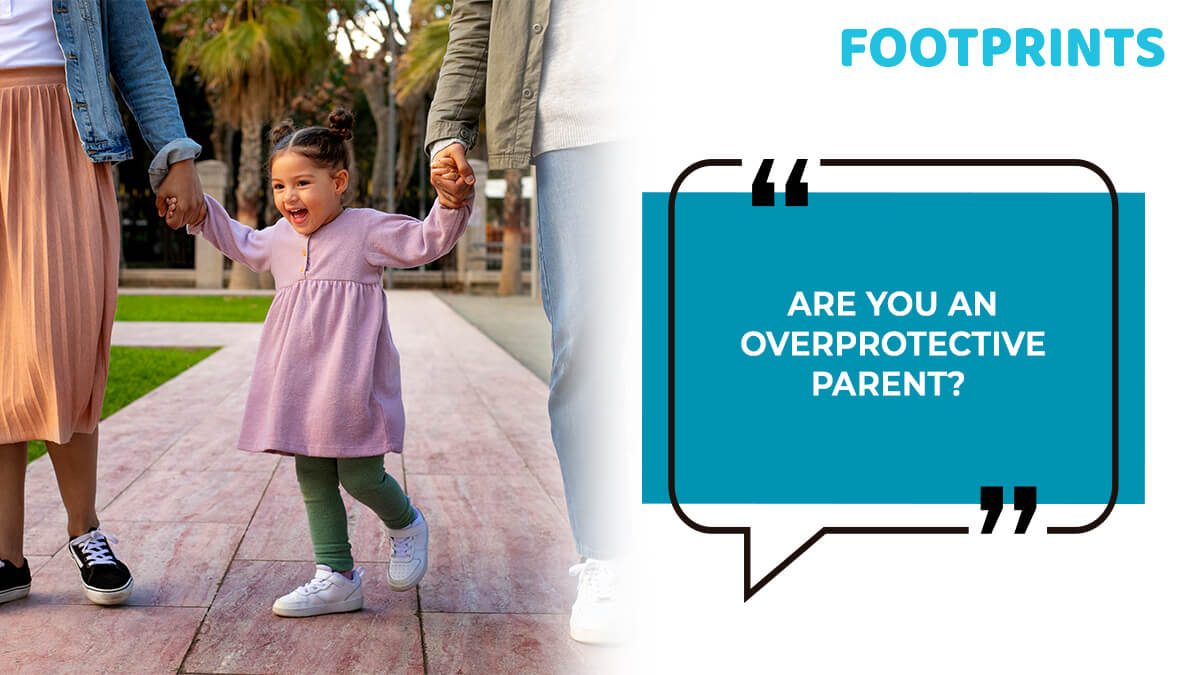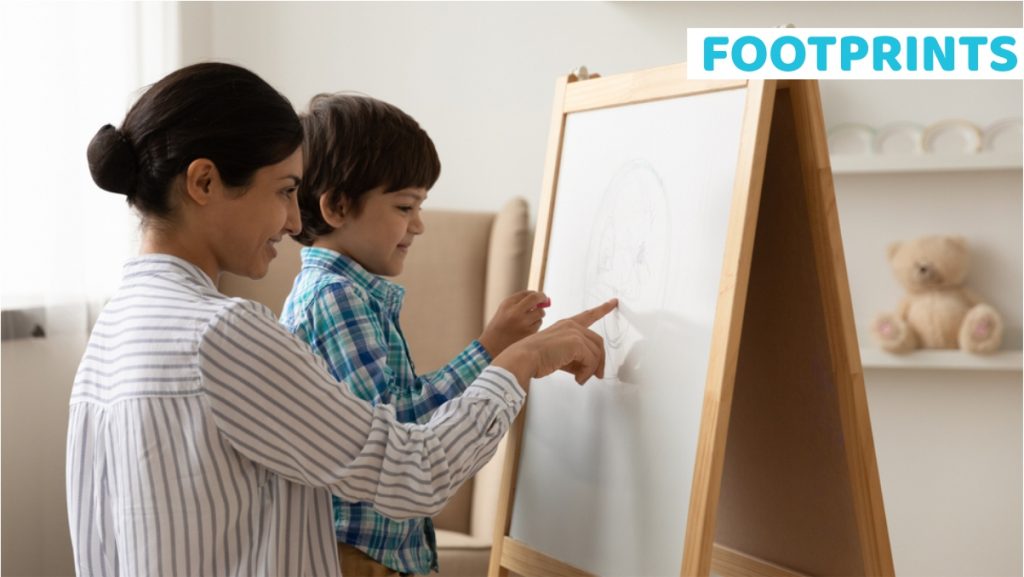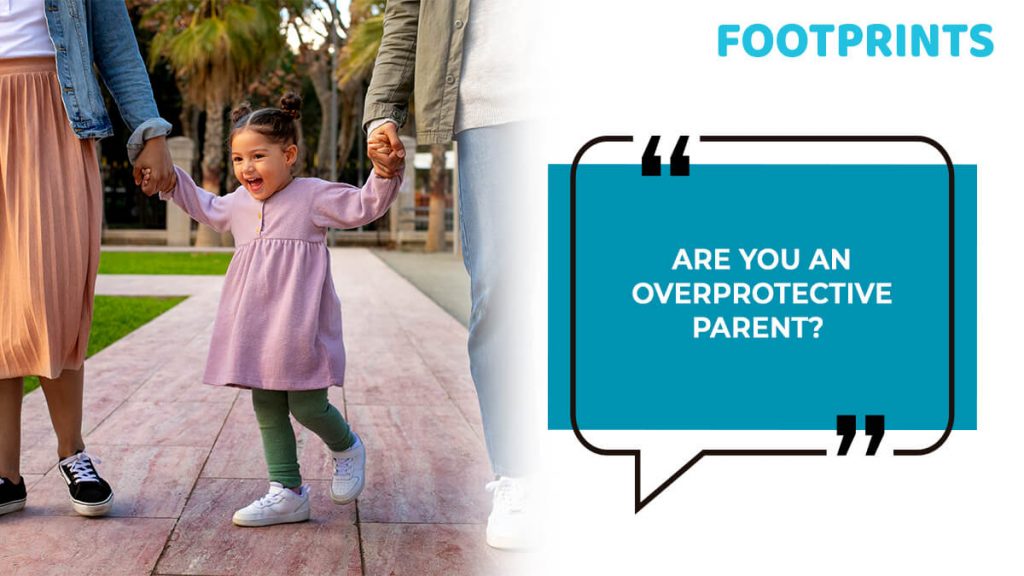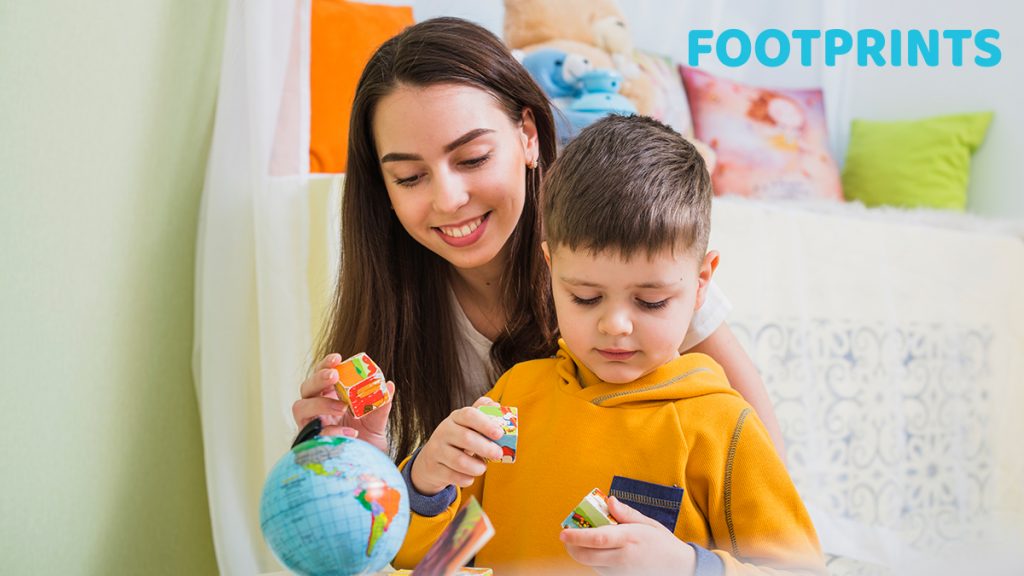
Parenting is one of the most rewarding yet challenging journeys of life. Every parent wants what is best for their child, including their safety and well-being. However, a fine line exists between being a protective parent and being overprotective. In this blog post, we will explore the concept of overprotective parenting and its impact on child development. We will provide a checklist to determine if you might be an overprotective parent. Footprints The best Preschool in India provides parents with invaluable support, offering expert guidance in child development, creating a nurturing environment for learning, and fostering a collaborative partnership for a child’s holistic growth. By the end of this article, you will better understand the importance of balancing protection and independence for your child’s growth and well-being.
What is Overprotective Parenting
Overprotective parenting refers to a style of parenting in which parents excessively shield their children from potential harm or danger. While it is natural for parents to want to protect their children, overprotective parents tend to go to extreme lengths to prevent any form of risk or discomfort for their child. They may constantly hover over their child, micromanage their activities, and restrict their freedom and independence. This style often stems from deep love and concern for the child’s well-being, but it can have detrimental effects on their development in the long run.
Signs That You Might Be an Overprotective Parent
Recognizing if you are an overprotective parent can be difficult, as it often stems from a genuine desire to keep your child safe. However, several signs can indicate that you may be crossing the line into overprotective parenting. Some common symptoms include constantly worrying about your child’s safety, being unwilling to let them engage in age-appropriate activities, being overly involved in their daily routines and decisions, and constantly seeking reassurance from others about your parenting choices. It is important to remember that these signs are not definitive proof of overprotective parenting, but they can serve as a starting point for self-reflection and evaluation.

The Impact of Overprotective Parenting on Child Development
Overprotective parenting can have significant impacts on a child’s development. While it is natural for parents to want to shield their children from harm, overly protective behavior can hinder a child’s ability to develop essential life skills. Children constantly protected from every potential risk may struggle with problem-solving, decision-making, and managing emotions independently. They may also create a dependency on their parents, which can prevent them from developing confidence and self-esteem. Additionally, it can limit a child’s exposure to new experiences and challenges, hindering their personal growth and ability to adapt to the world around them.
The Importance of Balancing Protection and Independence
Finding the right balance between protection and independence is crucial for healthy child development. Parents need to provide a safe and nurturing environment for their children. Still, it is equally important to allow them to explore their surroundings, take age-appropriate risks, and learn from their mistakes. Children need opportunities to develop resilience, problem-solving skills, and independence, which can only be achieved through a balanced parenting approach. By giving children the space to grow and learn from their experiences, parents can help them become more self-reliant and confident individuals.
How Overprotective Parenting Can Limit a Child’s Growth
It can unintentionally limit a child’s growth and potential. When parents constantly shield their children from risks and challenges, they may inadvertently send the message that the child is not capable of handling difficult situations. This can lead to a lack of confidence and self-efficacy in the child, as they rely on their parents to solve their problems. Additionally, It can hinder a child’s emotional development, as they may struggle with managing their emotions and facing adversity. Parents can foster resilience, independence, and personal growth by allowing children to experience challenges and learn from their mistakes.
Tips for Breaking Free from Overprotective Parenting Habits
Breaking free from overprotective parenting habits can be challenging, but it is essential for the child’s well-being and development. Here are some tips to help you transition to a healthier and more balanced parenting style:
Reflect on your parenting style: Take the time to reflect on your parenting habits and consider if they are overly protective. Recognizing and acknowledging your tendencies is the first step toward change.
Gradual exposure to risks: Start by gradually exposing your child to age-appropriate risks and challenges. This can be done by allowing them to make decisions on their own, participate in activities that push their boundaries, and solve problems independently.
Encourage independence: Foster independence in your child by giving them age-appropriate responsibilities and allowing them to make decisions. Encourage them to take on tasks without constant supervision and provide them with the support they need to succeed.
Trust your child’s abilities: Have faith in them and trust that they can handle challenges. Avoid stepping in and solving problems for them unless necessary.
Seek support: Reach out to other parents, professionals, or support groups who can provide guidance and support as you navigate the transition to a healthier parenting style.
Creating a Healthy and Balanced Parenting Style
Creating a healthy and balanced parenting style requires a combination of love, support, and guidance. It is important to provide your child with a safe and nurturing environment while allowing them to explore, learn, and grow. Finding the right balance between protection and independence can foster your child’s development and help them become resilient, confident, and independent individuals.
Conclusion
Parenting is a delicate balancing act between protection and independence. While it is natural for parents to want to shield their children from harm, being overly protective can hinder their growth and development. Parents can create a healthier and more balanced parenting style by recognizing the signs of overprotective parenting, understanding its impact on child development, and implementing strategies to break free from these habits. By allowing children to take age-appropriate risks, solve problems independently, and learn from their own experiences, parents can help them develop essential life skills and become confident individuals ready to face the world’s challenges.

Amita is an experienced educator with over 30 years of experience. She has an outstanding understanding of child development, having worked with various age groups for prestigious businesses. She has been dedicated to handling Footprints’s Curriculum and Delivery department for the past decade. Amita’s credentials include being one of India’s few HighScope Curriculum certified trainers and volunteering as a course leader for Landmark Education, the world’s largest training firm.



